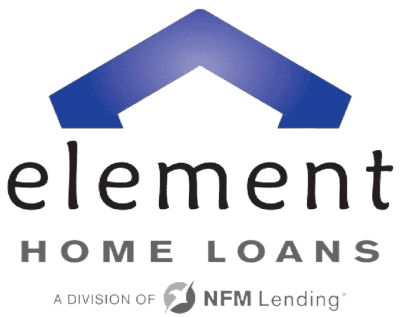Closing Costs
UPFRONT COSTS BEFORE CLOSING
When purchasing a home, there are several upfront costs to consider, including:
Earnest Money:
Usually one percent of the home's purchase price that you pay upfront as deposit to take the home off the market and is held by the title company. Be sure to ask for an option period as well which can come at a cost between $100 to $500. The option period gives you a specified amount of time that you a back out of the home for any reason. The option period can be anywhere from 5 days to 21 days in most cases.
Home Inspection:
A home inspection is an optional but recommended expense that typically costs between $400 and $600. This is a thorough evaluation of a property's condition, typically conducted by a professional inspector. During the inspection, various aspects of the home are examined, including:
- Structural Integrity: Walls, roof, foundation, and framing.
- Electrical Systems: Wiring, outlets, and circuit breakers.
- Plumbing: Pipes, fixtures, and water heaters.
- Heating and Cooling Systems: HVAC units and ductwork.
- Roof Condition: Shingles, flashing, and drainage.
- Pest Infestation: signs of termites or other pests.
- Safety Issues: Smoke detectors, carbon monoxide detectors, and general safety hazards.
Why You Need a Home Inspection:
- Identify Issues: It can uncover hidden problems that may not be visible during a regular walkthrough, helping you avoid costly repairs down the line.
- Negotiation Tool: If significant issues are found, you can negotiate repairs or price reductions with the seller before finalizing the purchase.
- Peace of Mind: Knowing the condition of the home can give you confidence in your investment.
- Future Planning: An inspection can help you plan for future maintenance and repairs by identifying the lifespan of critical components.
Overall, a home inspection is a vital step in the home-buying process, ensuring you make an informed decision.
Appraisal Fee:
Required by lenders to determine the home’s value, usually costing around $500 to $800. A home appraisal is an objective assessment of a property's value, typically conducted by a licensed appraiser. The appraiser evaluates various factors, including:
- Location: The neighborhood and proximity to amenities.
- Comparable Sales: Recent sales of similar homes in the area (comps).
- Property Condition: The state of the home, including any upgrades or repairs.
- Size and Features: Square footage, number of bedrooms and bathrooms, and unique features.
Why You Need a Home Appraisal:
- Lender Requirement: Most lenders require an appraisal to ensure that the property's value aligns with the loan amount. This protects them from lending more than the home is worth.
- Determining Fair Market Value: An appraisal helps establish a fair market value for the home, which can guide your purchase decision.
- Negotiation Leverage: If the appraisal comes in lower than the purchase price, it can provide leverage in negotiations with the seller.
- Investment Protection: Knowing the accurate value of the home helps you avoid overpaying and protects your investment in the long run.
Overall, a home appraisal is a crucial part of the buying process, ensuring that you’re making a sound financial decision.
These costs can add up quickly, so it's essential to budget for them when planning to purchase a home.
Closing Costs
What are Closing Costs?
Closing costs may vary depending on factors such as the location of the property and the specific transaction. However, here are some standard components of closing costs:
- Loan-related fees: Origination fees, application fees, and points (if applicable).
- Title-related fees: Title search, title insurance, and recording fees.
- Appraisal fees: Cost associated with property appraisal.
- Inspection fees: Costs for home inspections and other necessary inspections.
- Attorney fees: Fees for legal representation during the closing process.
- Escrow fees: Charges for managing the funds and documents during the closing process.
- Property taxes and insurance: Prorated taxes and insurance premiums.
Components of Closing Costs
Closing costs may vary depending on factors such as the location of the property and the specific transaction. However, here are some standard components of closing costs:
- Loan-related fees: Origination fees, application fees, and points (if applicable).
- Title-related fees: Title search, title insurance, and recording fees.
- Appraisal fees: Cost associated with property appraisal.
- Inspection fees: Costs for home inspections and other necessary inspections.
- Attorney fees: Fees for legal representation during the closing process.
- Escrow fees: Charges for managing the funds and documents during the closing process.
- Property taxes and insurance: Prorated taxes and insurance premiums.
Factors Affecting Closing Costs
- Property Value: Closing costs are often a percentage of the property's sale price. Higher-priced properties may result in higher closing costs.
- Location: Closing costs can vary based on the location of the property. Different states or regions may have different fees, taxes, and regulations that impact the overall closing costs.
- Loan Amount: The size of the loan can influence closing costs. Certain fees, such as loan origination fees, maybe a percentage of the loan amount.
- Lender Requirements: Lenders may have specific requirements and fees associated with the loan, such as appraisal fees, underwriting fees, or mortgage insurance premiums.
- Property Type: The type of property being purchased can impact closing costs. For example, condominiums may have additional fees for homeowners' association (HOA) documents or transfer fees.
Let’s Chat
Start your journey today, feel free to reach out to us for personalized mortgage guidance and assistance.
Do you like to speak directly?
Call Us On: (281) 767-6700 or Email Us.
Contact Us
Click And Learn
20% Down payment
Risk Factors
Solution
Perfect Credit
Risk Factors
Solution
Interest Rates
Risk Factors
Solution
Finding a house
Risk Factors
Solution
30-Year Fixed-Rate Mortgages
Risk Factors
Solution
Element Home Loans

Contact Us
(281) 767-6700Send Me An Email
Katy, TX 77449
Licensed In: TX
The content provided within this website is presented for information purposes only. This is not a commitment to lend or extend credit. Information and/or dates are subject to change without notice. All loans are subject to credit approval. Other restrictions may apply. Mortgage loans may be arranged through third party providers.

Rick Carrier
It takes just 60 seconds to get started!
